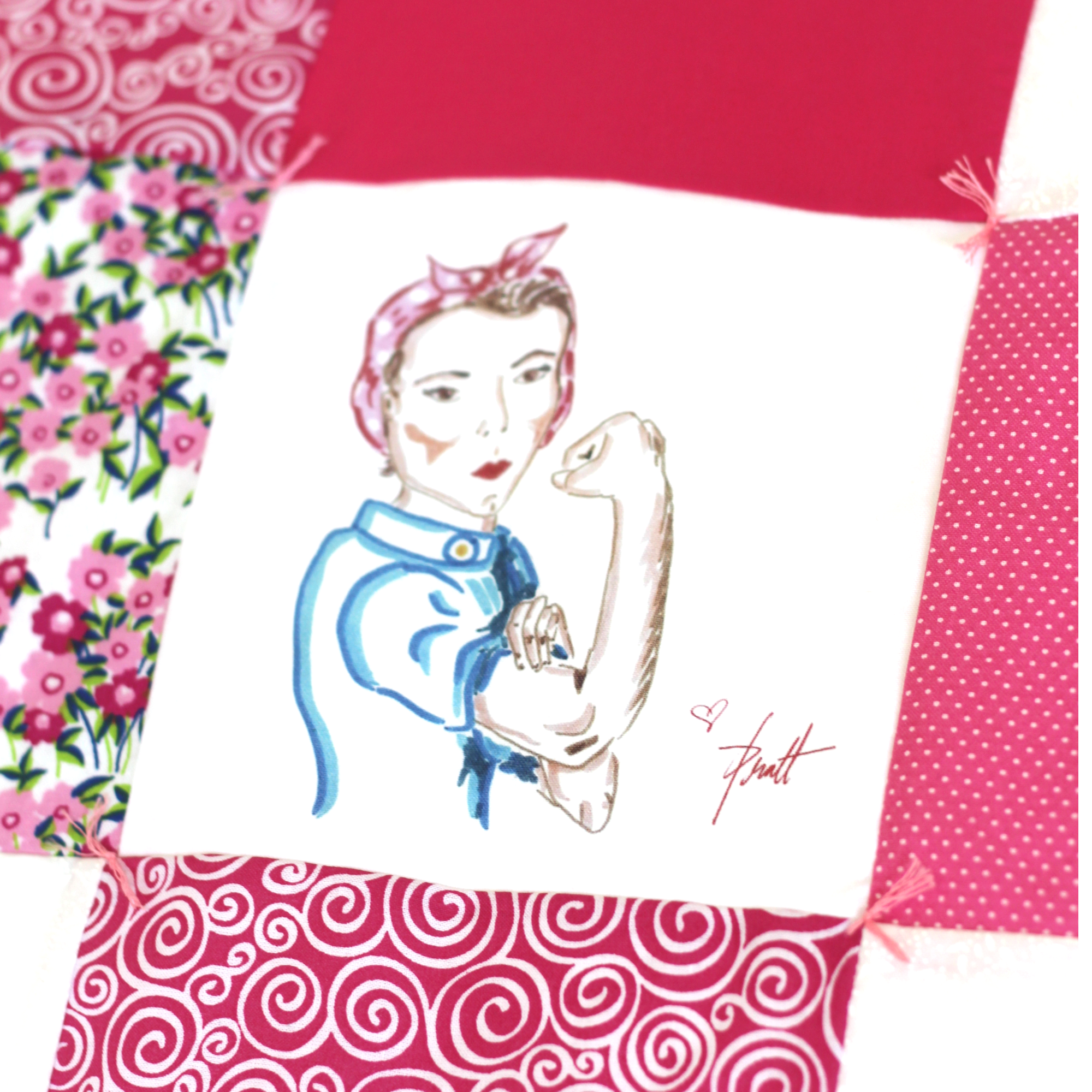We Are Better Together — No Seriously
We Are Better Together -- No Seriously
Liz Coyle
About the author: Liz Coyle is the founder of Quiltlove. Quiltlove makes custom quilts designed to be given as group gifts to the special people in our lives, as they face major life events. With Quiltlove, support networks can wrap a friend or family member in their love.
Several years ago, Dr. Julianne Holt-Lunstad of Brigham Young University boiled a heap of meaty research down to a simple finding: loneliness and a low level of social support present the same risk to our physical health as smoking 15 cigarettes a day. That’s right. While people facing cancer and other serious illnesses have long been advised to join support groups to bolster their emotional well-being, we now know that social support is also linked with improved physical health in the general population, such as lower mortality rates, lower risk of heart disease and stroke and decreased blood pressure and chronic pain.
Social scientists have been warning about the deteriorating quality and quantity of our social ties for decades. The year 2020 added fuel to this trend, as COVID-19 brought with it the meteoric rise of the isolating practices with which we are now all too familiar. Researchers are taking notice. A study from earlier this year shows that lonely oncology patients who face high levels of social isolation report more severe symptoms (i.e., anxiety, depression, fatigue, sleep disturbance, cognitive dysfunction and pain) than their socially connected counterparts. What’s more, a British study found that people living with breast, prostate and blood cancers are more than four times more likely than a control group to develop depression due to feelings of isolation during COVID-19.
Christine Miaskowski, RN, PhD, FAAN, of the University of California, San Francisco, lead author of the study on loneliness among oncology patients, explains, “Patients with cancer, as well as survivors, need to realize that feelings of loneliness and social isolation are very common during the COVID-19 pandemic. In addition to this sense of loneliness, they may be having feelings of anxiety, sadness, and fatigue, as well as problems sleeping and high rates of unrelieved pain--all at the same time."
Grim as the landscape may be at times, there is huge untapped potential for rebuilding lost or deteriorated social connections in our lives. Doing so is good for us and good for the people with whom we connect. We truly are better together.
Do you know somebody facing cancer? Here are five ideas to jumpstart your social support. Bonus: Most of them are free or low-cost.
Designate a time each week to send them a message or give them a call. For accountability, consider scheduling this activity in your calendar as you would any other recurring appointment.
Meet for walks, gentle hikes or bike rides, if and where it is safe to do so.
Read a book together as your own micro-book-club, or agree to watch a TV series at the same time each week. Then, debrief.
Offer to support a caregiver with a particular errand or recurring chore, to indirectly support your friend and ease the collective burden of unpaid caregiving.
5. Give a lasting gift to remind them of your friendship, such as a quilt, a framed photo of you together, or a video montage with other friends and/or family members telling stories of shared memories.
Support does not need to be reserved for our closest circle of family members and friends to be effective. Reaching out to colleagues, neighbors, acquaintances, and more distant relatives as well as friends can pay dividends, as we weave our frayed social fabric back together. If you haven’t picked up your phone yet to check in on an old friend, perhaps now is the time.
Check out our blogs about Managing the Practical and Emotional Impacts of Social Distancing and The Benefits of Support Resources for Breast Cancer Patients

